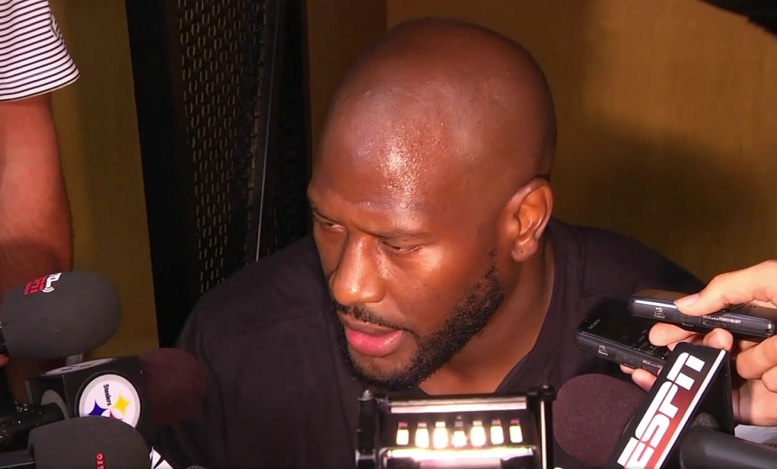The Pittsburgh Steelers were fortunate to get a number of things behind them yesterday. It started with the inevitable salary cap movement, restructuring the contract of Marcus Gilbert in order to free up some cap space that will be needed by the time the regular season rolls around.
Also rivaling in significance was, at long last, the conclusion—or at least the beginning of the end—of a nine-month long saga that began in December of 2015 with an Al-Jazeera report that named, among others, Steelers outside linebacker James Harrison in an investigation into allegations of use of performance-enhancing drugs in American professional sports.
Though the subject of that investigation was the now-retired Peyton Manning, Harrison was namedropped by the covertly-recorded worker at a facility that he claims supplied the former quarterback with said drugs.
While the reference at the time seemed fairly off-hand, as though he were just grasping at names of players about whom it might seem believable that such an allegation could arise—and indeed, he later fully retracted his statements after learning that he was recorded—the NFL still felt that it was their responsibility to do its due diligence in relation to the allegations.
In truth, I am not nearly as opposed to the league’s position on the matter as nearly everybody else seems to have been. I recognize the flimsiness of the evidence provided, but it would not seem unreasonable for the league to simply give an inquiry into them, which culminated in a 40-minute interview yesterday that left nobody the worse for wear.
While I recognize the process at hand and the position that the NFLPA and the players—Harrison foremost—took in believing that the allegations did not warrant their involvement in whatever background the league hoped to gather, it seemed clear from the start that there was little to be gained in not cooperating.
That was the ultimate conclusion that everybody reached, and all the interviews were conducted fairly harmlessly and in a relatively expedient matter, and now the months-long nonsense can finally begin fading into the background, as though it never existed.
The truth is that it made little difference what decision Harrison or other players might have made, because the precedent had already been set in the previous CBA, which gave the league the sort of power to invoke indefinite suspensions for players who would not cooperate with an investigation.
‘Taking a stand’ would have accomplished little beyond hurting the teams in taking away their players for however long they chose not to cooperate, until they ultimately cooperated anyway, at which point all gain would have fallen by the wayside in the process.
Especially in Harrison’s case, who is entering what is likely to be his final season, the risk was far too great to make any other decision but to submit to the interview, which, in and of itself, likely amounted to very little. Sometimes the principle has to be set aside for the benefit of the utility of the circumstances at hand.
Just consider that if he chose not to cooperate, he would be beginning a suspension today, and he would be belaboring the issue for perhaps quite a while into the future. Would that have been worth the effort and hassle?








